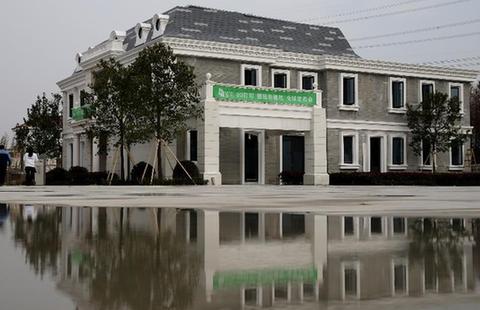Smart money should be invested in emerging markets
By Mika Bastin (China Daily) Updated: 2015-01-19 10:10But perhaps it is rather misleading to compare China's relatively impressive economic record only with the other BRICS countries. Many would argue that these cannot now be classified as "emerging". In fact, according to O'Neill, last year has produced a "new" set of economies that, he argues, represent the next wave of newly and rapidly industrializing countries: the MINTs (Mexico, Indonesia, Nigeria and Turkey).
So, let's now compare China's recent economic performance with these newly proclaimed tiger economies.
Only a month ago it was reported in the Financial Times that Mexico's growth forecast may be adjusted slightly downward for this year. A target of only 3.7 percent has now been established, an increase of a mere 1 percent on last year's figure.
What would the Mexican government not give for a growth rate anywhere close to China's current 7.5 percent?
Moving back to Asia but this time to Indonesia, the picture does at last appear slightly rosier. It is widely predicted that the recent decline in Indonesia's growth rate has in fact bottomed out at 5 percent for last year. Furthermore, encouraging signs and rhetoric by the new government about efforts to reduce the fiscal and current account deficits and free up funds for infrastructure and welfare investment have led to a growth forecast of 6.1 percent for this year and several years beyond.
But even this impressive GDP forecast for Indonesia falls nearly 20 percent below China's current growth rate.
In Nigeria, now the largest African economy and the "N" in MINTs, it was reported that the government had slashed its economic growth forecast for this year as a result of plunging global oil prices. Oil accounts for the bulk of government income so it is no surprise to see a revised growth forecast for this year, down from an initial 6.4 percent to 5.5 percent.
Even the original forecast for growth by the Nigerian government of 6.4 percent falls almost 15 percent short of China.
Moving along to Turkey, which is always on the verge of full membership of the single European market and has long been heralded as an economic tiger waiting to pounce. Only a few days ago, the World Bank released a growth forecast of only 3.5 percent for the country this year.
Even if this is achieved, Turkey will be running at less than half the speed of the Chinese economy.
Any potential investor with an eye on overseas, emerging economies should study the above carefully.
China remains a relatively attractive destination for foreign investment with growth rates and forecasts far in excess of all its competition.
In addition, China's central government has made it clear that a stable, more balanced and more sustainable economy is the priority. A modest slowdown is seen as an integral factor in this more sensible and longer term economic perspective. That said, the central government has also made it clear that ministimulus packages will continue to be rolled out in order to ensure that no additional decline in GDP figures occur.
Recently, more economic good news has also been reported. Inflation remains low and has been on a downward and stable path for well over a year now, and the Shanghai stock exchange has shown dramatic upward movement recently.
Furthermore, China's central government appears determined to push on with the process of economic reforms, and slightly lower growth may well allow for far speedier implementation.
Of course, European investors should continue to scour emerging market economies where gains are most likely to be greater but in so doing, no economy will shine more brightly than China.
The author is a visiting professor at the University of International Business and Economics in Beijing and a senior lecturer in marketing at Southampton Solent University's School of Business. The views do not necessarily reflect those of China Daily.
- AP, NY Times and others to test drone journalism
- Xiaomi has to tackle Huawei first before taking on Samsung
- Lock-up shares worth 71b yuan eligible for trade
- Li's presence at Davos forum to bolster int'l confidence in Chinese economy
- China's security hardware firms seek to boost Mideast business
- Automatic bartender machine invented
- Beijing residents benefit from Farmers-to-Consumers
- 3D printed houses seen in China's Suzhou

















